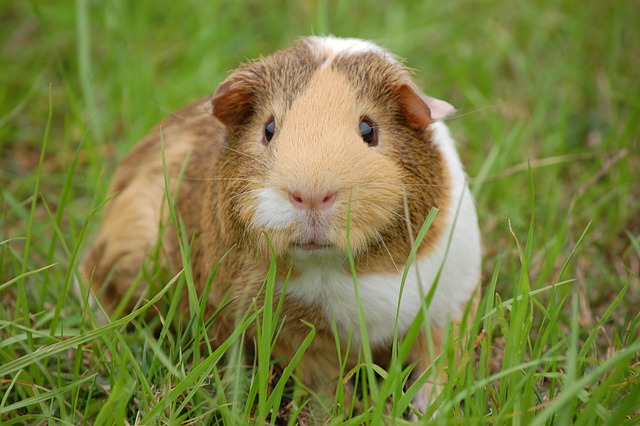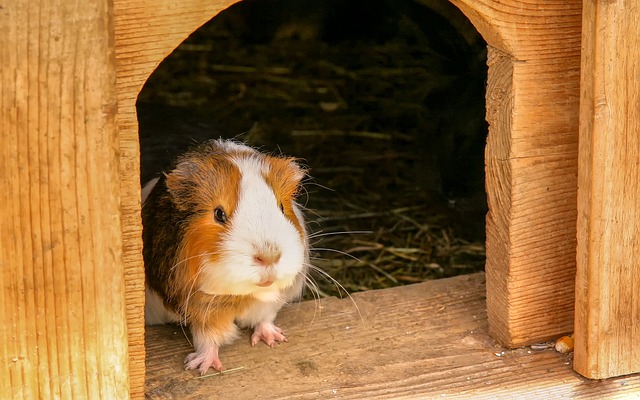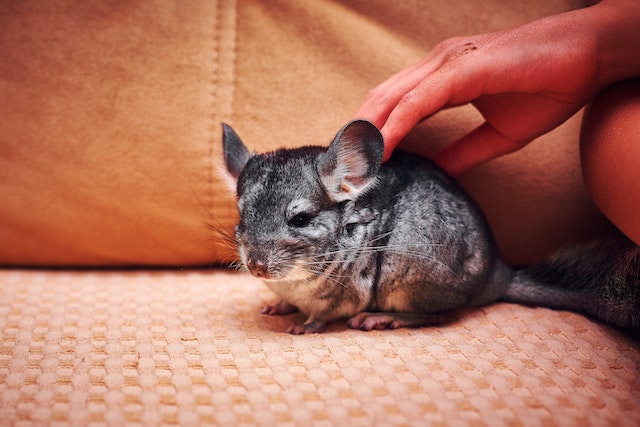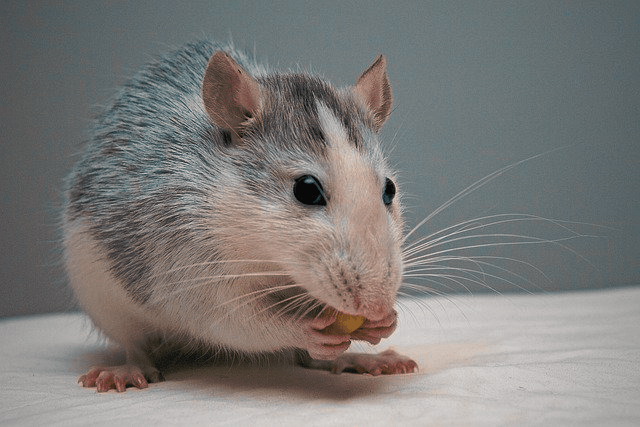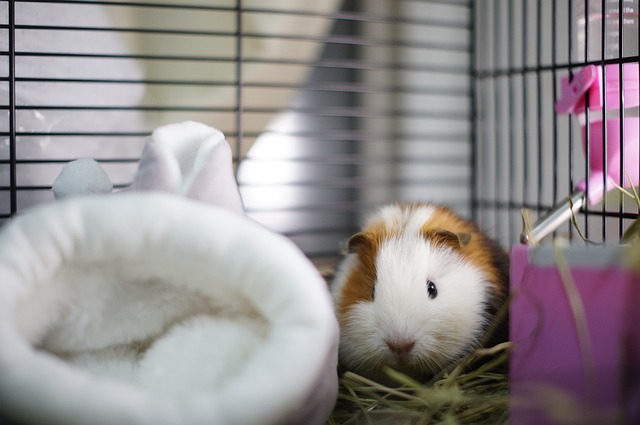Why Does My Guinea Pig Poop So Much: Understanding Their Digestive System
There are some affiliate links below, but they are all products I highly recommend. For more info, view my disclosure here.
If you’re a guinea pig owner, you may have noticed that your furry friend seems to poop a lot. In fact, it’s not uncommon for guinea pigs to produce up to 100 pellets a day! While this may seem excessive, it’s actually a natural and necessary part of their digestive process.
Guinea pigs are herbivores, which means their diet consists mainly of hay, fresh vegetables, and pellets. Because their food is high in fiber, their digestive system works quickly to break it down and eliminate waste. This is why guinea pigs poop so frequently – their bodies are constantly processing food and getting rid of the byproducts. In addition, guinea pigs have a unique digestive system that requires them to eat their own poop in order to extract all the necessary nutrients from their food.
So, if you’re wondering why your guinea pig poops so much, it’s simply because their digestive system is designed to work efficiently and keep their bodies healthy. While it may seem like a lot to clean up, frequent pooping is a sign that your guinea pig is getting the nutrition they need to thrive.
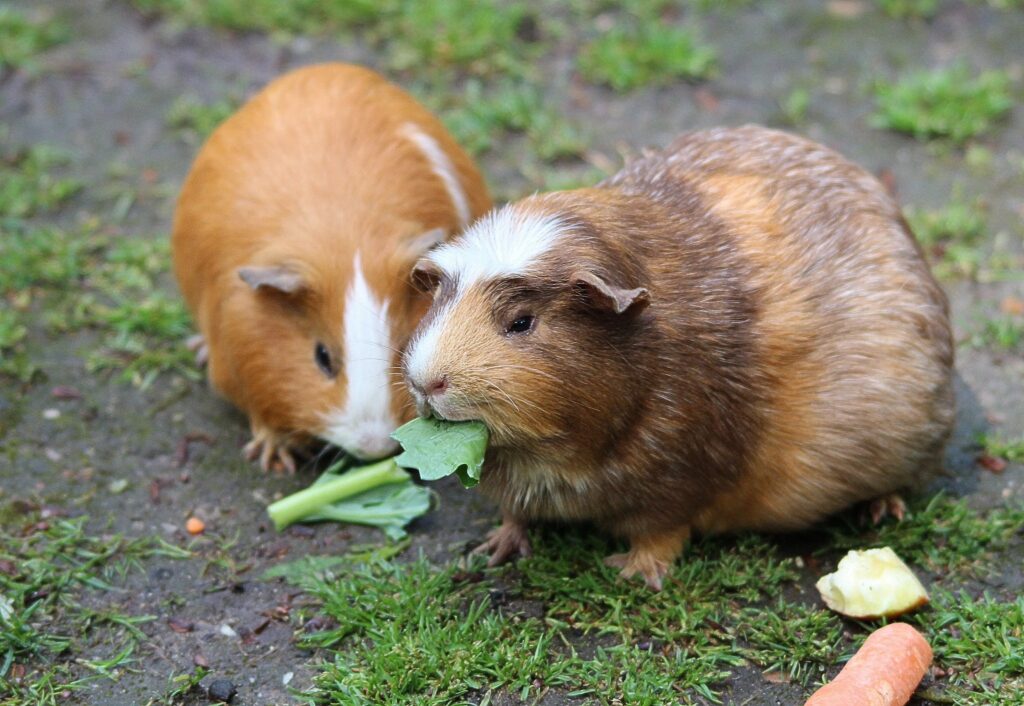
Understanding Guinea Pig Digestive Health
Digestive System Basics
To understand why your guinea pig poops so much, it’s important to know about their digestive system. Guinea pigs are herbivores, which means their digestive tract is designed to break down plant matter. They have a large cecum, which is a pouch that helps to ferment and break down tough fibers. This is important because guinea pigs need a lot of fiber in their diet to keep their digestive system healthy.
Normal Poop Characteristics
Guinea pig’s poop should be firm and round, about the size of a pea. The color should be brown or dark brown, and it should not have a strong odor. If your guinea pig’s poop is soft, watery, or has a foul smell, it may be a sign of digestive issues.
Cecal Pellets and Their Importance
In addition to their normal poop, guinea pigs also produce cecal pellets. These are small, soft, greenish-brown pellets that are produced in the cecum. They are rich in nutrients and contain good bacteria that help to keep your guinea pig’s digestive system healthy.
Your guinea pig will eat these pellets directly from their anus, which may seem strange, but it’s an important part of their digestive process. If your guinea pig is not producing cecal pellets, it may be a sign of digestive issues or a lack of fiber in their diet.
In summary, understanding your guinea pig’s digestive health is crucial to keeping them healthy. By monitoring their poop, including their cecal pellets, you can ensure that they are getting the right nutrients and fiber they need.
Factors Influencing Poop Production
Guinea pigs are known for their frequent and copious poop production. While this may seem excessive to some pet owners, it is actually a normal and necessary bodily function for these small animals. However, there are a few factors that can influence the amount and consistency of your guinea pig’s poop.
Guinea Pig’s Diet
One of the most important factors that can affect your guinea pig’s poop production is their diet. A healthy guinea pig diet should consist of hay, fresh vegetables, and a small amount of pellets. Timothy hay is an essential part of a guinea pig’s diet as it provides the necessary fiber to keep their digestive system running smoothly. Fresh vegetables, such as kale, spinach, and carrots, also contain fiber and other important nutrients that can help regulate your guinea pig’s bowel movements.
It is important to note that overfeeding your guinea pig can lead to an increase in poop production. Make sure to measure out the appropriate amount of pellets and vegetables and avoid leaving excess food in their food bowl.
Hydration and Water Intake
Another important factor that can influence your guinea pig’s poop production is their hydration and water intake. Guinea pigs require fresh water at all times, and a lack of water can lead to constipation and a decrease in poop production. Make sure to provide your guinea pig with enough water in a clean water bottle, and monitor their water intake to ensure they are drinking enough.
Exercise and Activity Levels
Lastly, your guinea pig’s exercise and activity levels can also affect their poop production. A lack of exercise can lead to constipation and a decrease in poop production. Make sure to provide your guinea pig with enough space to move around and play, and encourage them to exercise by providing toys and hiding treats around their cage.
In conclusion, there are several factors that can influence your guinea pig’s poop production, including their diet, hydration and water intake, and exercise and activity levels. By providing your guinea pig with a healthy diet, enough water, and enough exercise, you can help regulate their bowel movements and ensure they stay happy and healthy.
Health Concerns and Abnormal Poop
If you’re a guinea pig owner, you may be wondering why your furry friend poops so much. While guinea pigs are known for their frequent bowel movements, there are times when their poop can indicate underlying health concerns. In this section, we’ll cover some of the potential health issues that may be related to abnormal poop in guinea pigs.
Signs of Digestive Problems
One of the most common reasons for abnormal poop in guinea pigs is digestive problems. If your guinea pig’s poop is dry or hard, it could be a sign of constipation or dehydration. On the other hand, if your guinea pig’s poop is watery or has a foul odor, it could be a sign of diarrhea or an intestinal infection.
Dehydration and Its Effects
Dehydration can be a serious issue for guinea pigs, and it can lead to a variety of health problems. If your guinea pig’s poop is dry or hard, it could be a sign that they’re not getting enough water. In addition to dry poop, other signs of dehydration in guinea pigs include lethargy, sunken eyes, and a loss of appetite.
When to Consult a Veterinarian
If you notice any of the following symptoms in your guinea pig, it’s important to consult a veterinarian as soon as possible:
- Bloody poop
- Watery stool
- Signs of dehydration
- Lethargy or loss of appetite
- Foul-smelling poop
- Signs of pain or discomfort
These symptoms could be a sign of a serious health issue, such as a viral or fungal infection, bladder stones, or other health issues that can affect guinea pigs. Your veterinarian can help diagnose the problem and provide treatment options to help your guinea pig feel better.
In conclusion, while guinea pigs are known for their frequent bowel movements, it’s important to pay attention to any changes in their poop. Abnormal poop can be a sign of underlying health concerns, such as digestive problems, dehydration, or other health issues. By monitoring your guinea pig’s poop and consulting with a veterinarian when necessary, you can help ensure that your furry friend stays healthy and happy.
Poop Management and Hygiene
As a responsible guinea pig owner, it is essential to manage your pet’s poop to maintain good hygiene and prevent health problems. Here are some tips to help you manage your guinea pig’s poop effectively.
Cleaning and Litter Training
Regular cleaning is crucial in maintaining a clean and healthy environment for your guinea pig. You should spot clean your guinea pig’s cage daily and do a deep clean at least once a week. During spot cleaning, remove any soiled bedding, litter, or droppings from the cage using a handheld vacuum or a dustpan and brush.
Litter training your guinea pig can also help manage their poop. Place a litter box or litter tray in the corner of their cage, and encourage them to use it by placing some of their droppings in the box. You can also reward them with a treat when they use the litter box correctly.
Choosing the Right Bedding
Choosing the right bedding is essential in managing your guinea pig’s poop. Avoid using cedar or pine shavings as they contain harmful oils that can cause respiratory problems in guinea pigs. Instead, opt for bedding made from recycled paper, hay, or fleece.
Fresh bedding should be provided regularly to keep your guinea pig’s cage clean and hygienic. Ensure that the bedding is dry and free from any moisture, which can lead to bacterial growth and unpleasant odors.
Monitoring Poop for Health
Monitoring your guinea pig’s poop is crucial in detecting any health problems early. Healthy guinea pig droppings should be firm, dark brown, and cylindrical in shape. If you notice any changes in the color, consistency, or frequency of your guinea pig’s droppings, it could be a sign of an underlying health issue, and you should consult a veterinarian.
In conclusion, managing your guinea pig’s poop is essential in maintaining good hygiene and preventing health problems. By following the tips above, you can ensure that your guinea pig’s cage is clean, comfortable, and healthy.
Frequently Asked Questions
Poop Quantity and Frequency
As a guinea pig owner, you may be wondering how much poop is normal for your furry friend. Guinea pigs are known for their high frequency of pooping, and it is perfectly normal for them to do so. In fact, a healthy guinea pig can produce up to 200 poops a day! The amount of poop produced by your guinea pig can vary depending on factors such as their diet, age, and overall health.
Eating Poop: Normal or Not?
You may have noticed your guinea pig eating their own poop, and you may be wondering if this is normal or not. Don’t worry, this behavior is perfectly normal and actually serves a purpose. Guinea pigs have a unique digestive system that requires them to eat their own feces in order to extract as many nutrients as possible from their food. This behavior is called coprophagy and is a natural part of a guinea pig’s digestive process.
Changes in Poop Over Time
It is important to keep an eye on your guinea pig’s poop to ensure their overall health. As your guinea pig ages, you may notice changes in their poop. For example, baby guinea pigs may produce smaller and softer poops than older guinea pigs. Additionally, changes in diet or health can also lead to changes in poop. If you notice any irregularities in your guinea pig’s poop, such as irregular shape, color, or consistency, it is best to consult with a veterinarian.
Overall, guinea pigs are prolific poopers, and it is perfectly normal for them to produce a large quantity of poop on a regular basis. By understanding the normal poop habits of your guinea pig, you can ensure their overall health and well-being.

Guinea pigs are known for producing a lot of fecal matter, which is a natural part of their digestive process. As a responsible guinea pig parent, it is important to understand that this is normal behavior and not a cause for concern.
While there is no way to completely eliminate your guinea pig’s poop, there are some things you can do to manage it. Providing your guinea pig with a healthy diet that is high in fiber and low in sugar can help regulate their bowel movements and reduce the amount of fecal matter they produce.
It is also a good idea to clean your guinea pig’s cage regularly to keep their living environment clean and hygienic. This can help prevent the buildup of fecal matter and other waste products that can lead to health issues.
Overall, the best way to deal with your guinea pig’s poop is to embrace it as a natural part of their biology and take steps to manage it in a responsible and hygienic way. With a little bit of effort and attention, you can ensure that your guinea pig stays healthy and happy, while minimizing the impact of their fecal matter on your home and surroundings.
